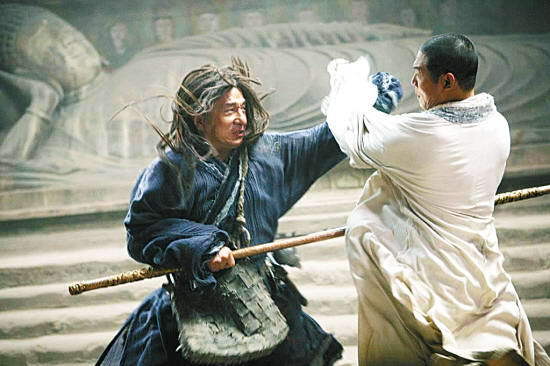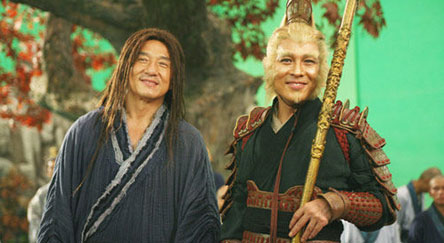Kung Fu mania's death or rebirth?

In westerners' eyes, Chinese movies are stereotyped as having only kung fu themes. From 1994 to 2004, among the Asian movies that became American box office top 10 hits, No. 1 was Crouching Tiger, Hidden Dragon in 2000 with a box office net of US$128 million; No. 2 was Hero in 2004, netting US$50 million; No.3 was the Rumble in the Bronx in 1995, grossing US$32.4 million. Not surprisingly, all three movies were kung fu films.
If you think that this achievement would satisfy the Chinese, then you are sneering at the Chinese team fighting for a place in Hollywood. The truth is that Chinese film makers are always worried that western audiences will get sick of those ancient costumes for martial arts and bamboo forests.
This year, An Empress and The Warriors became the most unpopular kung fu movie in six years with a box office gross of only 18 million yuan on the Chinese mainland, even though Siu-Tung Ching -- one of the three most famous action choreographers, directed the film.
Although American blockbusters are always repeating themselves -- ordinary people become heroes with a supernatural manteau; the end of the world always comes easily; the savior become younger and younger, audiences in other countries always forgive them for their plain and stupid plots because of their advanced stunt work.
"American special effects are very sophisticated. They can generate my kung fu techniques which I have studied for 30 years in three hours using special effects." Jackie Chan, who would never admit that Chinese kung fu movies would come to an end, ultimately voiced his worries in 2005 during a forum on Chinese kung fu's impact on the world.

Foreign journalists praise Jackie Chan and Jet Li, saying that they love kung fu more than Schwarzenegger and Jean-Claude Van Damme. Their artistic life is several times longer the life of American action stars. One major reason for this is because no one can replace them. Yuen Woo Ping, the most popular martial arts choreographer among foreigners, said that there is somewhat of a problem after Jet Li retires; someone needs to carry on. Yuen said "somewhat" impliedly. Actually many kung fu directors have discerned the very same problem.
Time is irreversible. Jackie and Jet are becoming older and older; their physical strength is going downhill. "If someone asks me to shoot a scene jumping from a building, I probably won't finish it. I really don't know what will be the future of Chinese kung fu movies. We have shot everything we can. Nothing is new. Sometimes I feel that it is very difficult to go on," Jackie Chan said.
Jackie and Jet aren't worried about the box office receipts for The Forbidden Kingdom in America at all. Their 15 minutes of fight scenes will undoubtedly attract viewers. But they're praying that the Chinese box office would account for 30 percent of the gross. Yet Chinese people would probably have no interest in the movie because it boldly blends Monkey King, the White-haired Witch, Golden Sparrow, drunken boxing, shadowboxing all together. They want to create some "cultural infiltration" -- let the Americans who are unwilling to know other culture learn about the origin, personality, and weapon of the Monkey King; let Americans accept Chinese subject matter. Jackie Chan is more ambitious about this. Jet Li is more placid; he explains everything in terms of yin and yang. If interpreted in this way then kung fu movies would have no peak or low valley, and kung fu movies would never die out.